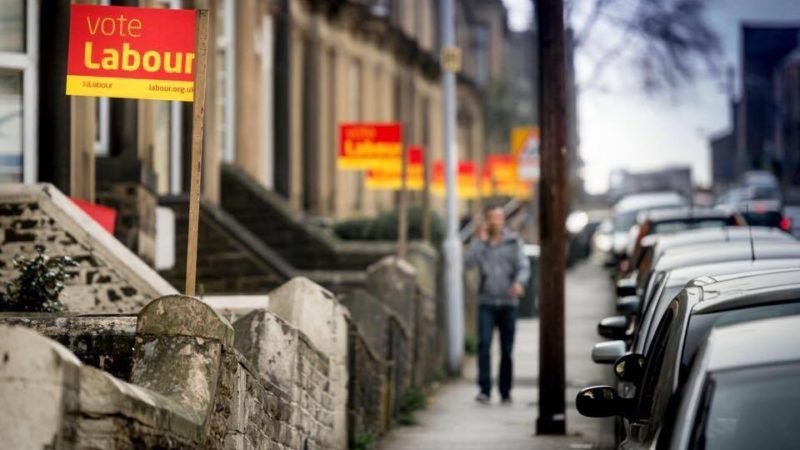
Tory conference has been overshadowed by allegations of sexual misconduct surrounding Boris Johnson. The policies that have been able to come to the fore expose the timid way in which the Conservatives are implementing their ploy to nab Leavers from Labour. The living wage will rise to £10.50 over the next five years, Sajid Javid told us – ignoring Labour’s own policy of raising it to £10 in 2020, and extending the NLW to under-18s. No more automatic early release for violent and sex offenders, the Justice Secretary will say today – without addressing concerns over prison population, which would be increased by around 3,000. Oh, and let’s not forget their key pledge: allowing homeowners to add two storeys to their house without planning permission. By Monday of Labour conference, the opposition party had unveiled plans to integrate private schools, scrap prescription charges in England, end super-short prison sentences, introduce free personal care and a four-day working week, to name just a few radical proposals.
Following a report from RTE that the UK is proposing custom posts on both sides of the Irish border as an alternative to the infamous backstop, the focus is on Brexit today. Everyone agrees that the idea being floated is “utterly unworkable”, as Keir Starmer has put it, and won’t get anywhere. Even if a proposal did fly in Europe, the Prime Minister has made it hugely difficult for pro-deal Labour MPs to support the government in any vote. (Others, i.e. most Labour MPs, are willing to vote for a deal as long as a referendum is attached. And have that public vote held before an early election. Quite how they expect this to get a majority is beyond me.) But the narrative shift taking place thanks to the RTE leak suits Johnson: it gives him an excuse to say he’ll “get Brexit done” repeatedly. This lays the ground for a huge tantrum later in the month when he’ll be forced to request an extension and be able – perhaps after another defeat in the courts – to lay the blame at someone else’s door.
Among the Labour grassroots, the hot topic is selections. And members are angry. In many seats, they have been waiting months if not years to be given permission to choose their next parliamentary candidate. In unwinnable seats, typically in the South, they just want to get on with officially endorsing someone – probably the person who ran last time – and don’t understand why they are not being allowed to do so. In retirement and defection seats, which are mostly safe for Labour, members are worried that they could have the leadership favourite imposed on them. This is not always a concern that runs along factional lines – it is often one of principle for those on the left, who may well favour ‘the chosen one’ yet still want to hold a full process. (And, more cynically, it is worth noting that the ‘most Corbynite’ applicant is often not the one preferred by the NEC.)
Ilford South is being allowed to continue, and Enfield North is carrying on without permission (locals believe an NEC intervention must surely be on its way). But selections have been paused in many crucial seats across the country. Labour parties including Vauxhall, City of Durham, Erith and Thamesmead and Liverpool West Derby are complaining to the NEC and demanding that they be allowed to have a say. Details of truncated processes are yet to be revealed, but shortlists drawn up by the NEC are the most likely route. Defenders of this plan argue that it is based on pragmatism: there is simply not enough time for full processes before a snap election. Opponents point out that there has been enough time before now, and some question whether trigger ballots should be prioritised. Even from the perspective of the Corbyn project, the success of which will be judged mainly on who succeeds Jeremy Corbyn as leader, it is not a good idea to rile up members by giving the impression of top-down decision-making. If nothing else, the party needs to improve internal communications.
Sign up to LabourList’s morning email for everything Labour, every weekday morning.



More from LabourList
Letters to the Editor – week ending 1 March 2026
‘I spent years telling workers the law couldn’t help them – that has changed’
Josh Simons resigns as Cabinet Office minister amid investigation